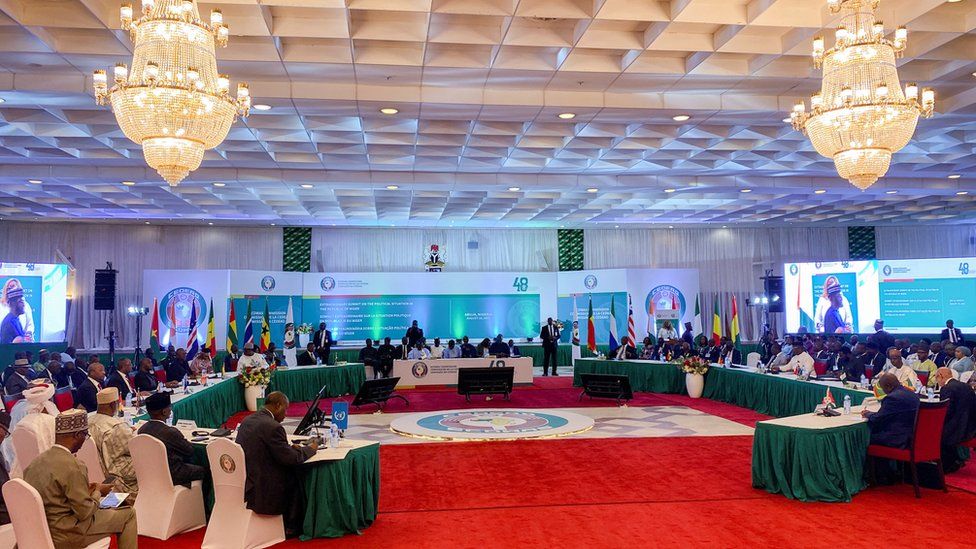-

-
-
Loading

Loading

Niger, Mali, and Burkina Faso have declared their intention to leave the Economic Community of West African States (ECOWAS). These countries, which are currently led by military juntas, had already been suspended from the bloc and were urged to restore democratic rule. The three governments stated that their withdrawal from ECOWAS was a "sovereign decision." It is worth noting that they were also founding members of ECOWAS when it was established in 1975. In a joint statement read out on state broadcasters in the three countries, they claimed that ECOWAS had deviated from its original principles and the spirit of Pan-Africanism. They accused the bloc of being under the influence of foreign powers and failing to assist in combating the jihadist insurgencies afflicting their nations. Tensions between ECOWAS and these three countries have been high since military coups occurred in Niger in July, Burkina Faso in 2022, and Mali in 2020. ECOWAS has called for the return to civilian rule in all three countries. In response to the recent announcement, ECOWAS stated that the three countries still hold importance as members and that the bloc is committed to finding a peaceful resolution to the political deadlock. However, it highlighted that it had not yet received any formal notification about their withdrawal from the organization. According to the ECOWAS treaty, member countries wishing to withdraw must provide written notice one year in advance and continue to adhere to its provisions during that period. Despite facing suspension from the bloc, sanctions, negotiations, and even threats of military intervention, the military leaders in these countries remain steadfast in their stance, claiming that ECOWAS is influenced by external powers. In September, the three nations formed an alliance called the Alliance of Sahel States, distancing themselves from their former colonial power, France, and strengthening ties with Russia. The military leaders argue that they need to restore security before holding elections, as they grapple with insurgencies linked to al Qaeda and the Islamic State. Niger's military leaders have expressed a desire for a transition period of up to three years before returning to civilian rule, while the military government in Mali postponed elections from February to an unknown date. Burkina Faso has scheduled elections for this summer but maintains that countering insurgents remains their top priority. A delegation from ECOWAS had planned to travel to Niamey for a meeting with the junta in Niger but encountered technical problems with the aircraft in Abuja, leading to the meeting's postponement.